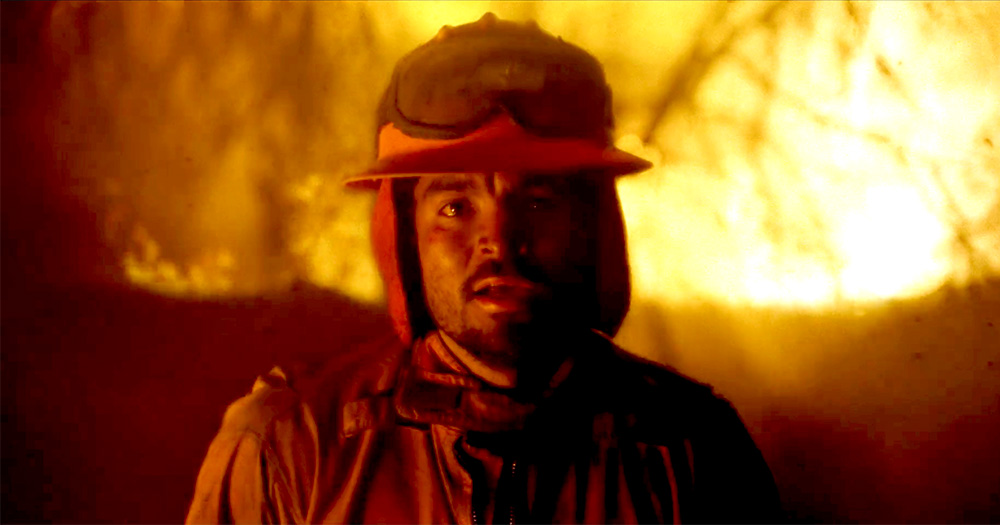
Otto, played by Bobby Soto. Picture courtesy of London Flair PR
the WORD: Can you tell me a little bit about the story (TADAMAIMA)?
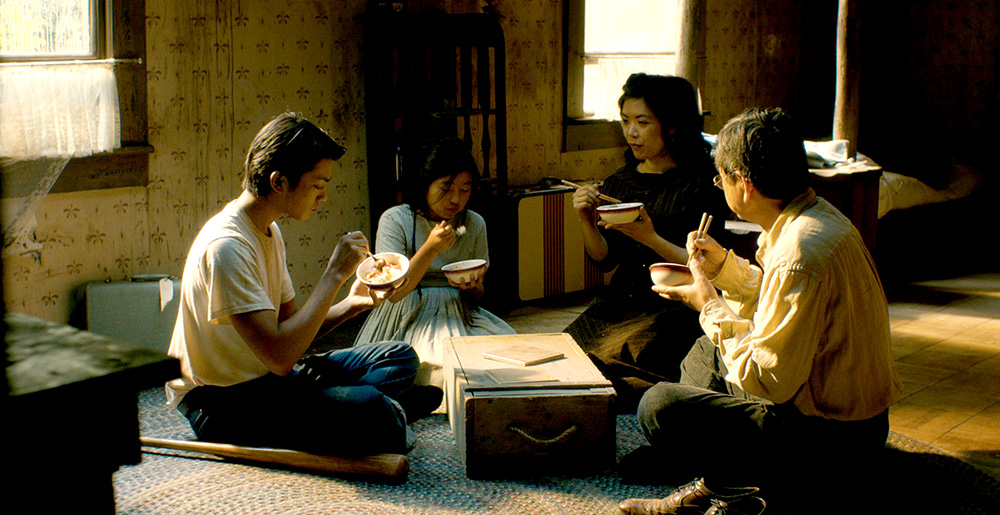
Scene from Film Short TADAMAIMA (2014)
Director Robin Takao D’Oench: Of course. So that came about … like I mentioned before, my grandparents were incarcerated in the Japanese American internment camps. And coming out of college, it was a story that I deeply, deeply wanted to make. And actually, the same cinematographer who shot FIRELINE, shot TADAMAIMA, that was the two movies that we’ve worked on.
And it came about of … well, really how this really came about was I had this quote, unquote, “dream job” working as a Hollywood assistant right out of college. And I was quote, unquote, “in the room” where it happens, working on movies from 15 to 25 million dollars. And it was a learning experience.
And I got fired from that job after a year because I just wasn’t a good assistant. I’ve gotten many qualities and being an assistant is just not really one of them.
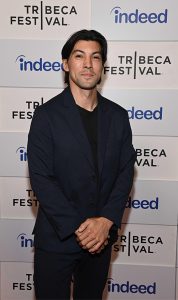
Director Robin Takao D’Oench. Picture courtesy of Indeed
And as I’m leaving this job – and this is what brought me out to California, because again, like I mentioned, I’m from New York – I’m walking on Sunset Boulevard as the sun is setting. And I’m just, after losing this job, and going, ‘What am I going to do?’And I resolved that I was going to make this movie that I’d always wanted to make, and I wanted to make it in California with an all Japanese American cast.
And I figured I’m in the right place. This is where I’m meant to be, and this is the time to go do it. And so instead of going back to New York, I recruited some friends and picked a date on the calendar and then just chased this movie, and it was about a family coming home from the camps and having to rebuild their lives in the aftermath of internment.
the WORD: How did your parents feel about you making a movie about them?
Director Robin Takao D’Oench: So, my grandfather has now passed, but I remember him coming to see the movie playing in San Francisco, and I think it meant … first of all, I actually… and I went to him and I said, “Hey, I’m going to do this movie. Is it okay?” And I sort of asked for permission, but it was a very emotional sort of ride to begin with. I hadn’t done anything really on this scale before. And so there was no evidence that I could do it. When I went to make FIRELINE, I had years of experience underneath me. I had enough caché to be like, ” I know what I’m doing.”
When I went to make TADAIMA, I didn’t have any of that. I had to convince people that I could do it. And I believed that I could do it, but I didn’t have anything to prove that I could do it. And so it was an experiment to say the least. And there was no expectation for what would come of it. There was no distributor or premiere or anything (lined up) like that. It was, “Can we do this and will it be worthwhile?” And it was.
the WORD: You also did a sci-Fi, HERE COMES FRIEDA? Could you tell me a little bit about that?
Director Robin Takao D’Oench: Yeah. So I had previous collaborators that I had worked with on another project prior to that. And the three of us all wanted to do this sci-fi movie. Plus I wanted to do this sci-fi movie very low budget. This was 2019, actually, and so at the time I was working as an assistant director on feature films. And so I’d be working and then in my off-time I’d be working on this short film.
And what we did was, it was what was a little prophetic, not intentionally, was we actually, so we make this dystopian sci-fi film in the summer of 2019. And when we’re finishing the movie, the pandemic hits. And so now we’re working on this dystopian sci-fi film as we’re going through COVID, in the very early months of COVID.
And so we finished the movie, I think in April or May of 2020. And we were all isolating, but everything was being done on ZOOM and remotely for the first time. And so that was a very unique experience. And if you’ll notice in the movie, the main character wears a face mask. And again, we had no knowledge what would occur, but it was again, oddly prophetic, that in this dystopian sci-fi world, the character would be wearing a face mask. And then months later we would all be wearing face masks.
the WORD: “Qualified to be considered.” When do they let you know that it’s considered?
Director Robin Takao D’Oench: This is an entirely new process for me. I’ve never done this before. I’ve never had a film as qualified for the Oscars. So my knowledge of it is that it’s submitted to the Academy. It’s in their system right now. I don’t know if I’m going to get an email or if I’m going to keep checking, but all I know is that it’s gone through certain steps to qualify for the Academy Award. And with any luck, we get some voters behind us and raise the profile of the film well beyond any expectation than we have ever had. So it is an incredible opportunity to even be this close.
the WORD: Wait a minute. There we go. Jesus. Okay. Indeed’s mission is to help people get jobs. How would you describe Indeed, too?
Director Robin Takao D’Oench: Indeed was an incredible partner. First off, they created this program to give underrepresented voices opportunities to tell stories that are not in the mainstream. And so I was one of 10 other films, and every single one of the films is an incredible piece of cinema that they’re incredibly unique, creative. It was really humbling just to be part of this cohort. And then Indeed has been really supportive.
First off, I think what they did really well was they curated a group that all brought really thoughtful and intentional and original ideas to the forefront. And then they really go to bat for us. One of the things that they do is the awards campaign and publicity around the films. And I think one thing that a lot of short films don’t receive is publicity support.
And so to be able to sit here with you today, that’s a result of Indeed saying, ‘No, we want to push these young filmmakers and raise their profile.’ And, as they say, they want this to be the last short film that you make. And I think that’s a really effective mission because ultimately, if you want to make a career in this work, that exists really in long form feature film and television.
And short film is really just an avenue to get to those next steps, but it is not a commercial endeavor in the same way. And so I think Indeed, as they say, they’re trying to put their money where their mouth is. And I’m really grateful to the entire team at Indeed for taking a chance on me and believing in a short film that had a five-minute fire sequence.
the WORD: I’m drifting back into the film again where that firefighter broke his leg. I thought… I’m caught at a tease. I don’t know if it’s a tease or not. But after their fire and their boss or their supervisors coming back to get them, I think the first scene, I thought, wow, only one of them made it back. And then it was two and then it was three. So was that planned like that? I mean, was that the idea?
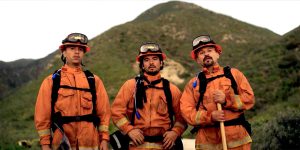
Picture courtesy of London Flair PR.
Director Robin Takao D’Oench: Yeah. So, yes, the idea was always to make the audience feel like they’re on the precipice of death. And even in the character’s mind and when I was talking to Bobby about when we were shooting that scene, I even asked him, because it wasn’t scripted actually, I asked him before we shot the scene, I go, “If this was your last words on earth, what would they be?”
A prayer. And I didn’t ask him what it was, he just looked at me and goes, “Yes, I know what it would be.” And I didn’t ask him what it was. And we went off and then we went and shot it. And it was that prayer of him in the bag.
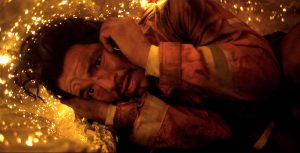
Otto, played by Bobby Soto. Picture courtesy of London Flair PR
And I just remember being standing there when we filmed it, and I was incredibly moved. And it was, if he believes that this is the last thing he does, we as an audience will believe it too. If you’ll notice, there’s this bookend when they get dropped off, we’re inside the van and the van driving away as we just dump these guys in the middle of nowhere.
And then when we go to pick them up, we’re back in the van, but now we’re on the front pulling up and we can’t really see if anyone’s there.
And for me, that was a metaphor as far as to what we do to people that are doing really dangerous work as, okay, you’re on your own. And if they’re not there, they’ll just move on. There’s no funeral for bodies that are lost. And the fact their presence on the road for me is a reminder that these people do this work, that human beings are the ones who are doing this and that we owe them a lot more than we know.
the WORD: How long did you work on this film?
Director Robin Takao D’Oench: I think I wrote the first draft probably this time last year. And then it became a whirlwind. I immersed myself in news articles and books. I was interviewing actual wildland firefighters, formerly incarcerated people. And so I wrote the first draft in probably September, October. And then the film got selected in December. So from January until March, it was just a sprint.
the WORD: Excuse me. Sorry. Are there other projects that you’re working on? I mean, yeah, there’s testament. Are there other projects that you’re working on at the same time that you’re doing all this other stuff.
Director Robin Takao D’Oench: So, when something’s going, you stop everything else. When you have the green light to go make one thing, then you put the horse blinders on and you go. And I think some people can do perhaps three projects simultaneously. I’m not that particular way.
I find that, especially for this particular budget and scale, it was for me an opportunity to make the best film I could make in the time that I had. And so for me, all I had was this. And so I pushed everything aside and just focused on this. So you’ll work on several different things and if something picks up steam, okay, now we’re working on that. And if that thing goes away, you pause on it, and then you work on something else that has a little bit more momentum behind it. But once you’re going, you are going.
the WORD: Okay, so how do you relax? Or do you?
Director Robin Takao D’Oench: Well, I have a daughter now. So I think one thing relaxing is I get to spend time with my kid.
the WORD: I don’t want to sound insulting, when I meant relax, creative people like you, what I was trying to say is … many like you … what I really mean is that relaxing may be part of the creative process, so you have energy that gets started on your other projects. That’s what I was …
Director Robin Takao D’Oench: Oh. I think again, it goes back to spending time with my kid. I think that when you’re pursuing creative endeavors, especially something like film, and again like I said, I have artist envy of painters and of musicians who can just generate on their own accord. But I think when you are in film, which is an intensely collaborative work and requires many people and time and money, there’s a patience required to get to that point of execution. And so to be able to spend time with people that have nothing to do with your creative endeavors, that’s relaxing.
the WORD: So having been interviewed by reporters, reviewers, et cetera, for your film and going through this interview process, were there questions you wish they had asked you that they didn’t? That I could have asked? Like something you wish they, me had asked you about this or that you thought should have been asked but it never happened?
Director Robin Takao D’Oench: That’s a good question. Let me think about that for a moment. I have to think about that. Because I think what are the questions that I would want to be asked?
A question I have not been asked, and I think that’s a really important question and I frankly do not have the answer, is what can we do better for people who are incarcerated? Because actually what I haven’t mentioned in this particular interview is on any given wildfire, up to 30 percent of Cal fire is supported by inmate labor. And you’ve got young men mostly under the age of 35, who develop this skill set that can really contribute to the better of our society and our communities and can assist really the state in fire prevention that is desperately, desperately needed.
And, yet, when they are released from prison, there is no clear pathway to employment. So the question I think that we should all be asking is how do we prepare young men and women who are equipped for fire safety and prevention in prison, how do we best employ them or best serve them when they get out of prison so we can reduce recidivism.
the WORD: Wow. Well, I think the film does that in a sense. I mean, this is a film that reverberates and resonates on many levels and it gets you thinking. And reviewer like me and audiences too are introduced to something out there that is rarely thought about or they don’t know about – and it can become a spark.
I think FIRELINE could be one of those films where savvy people {I should have said mover-sharkers, activists, people who make things happen} are going to pick up on this. There’s going to be some discussion I think out here. And there’s something good, I don’t know exactly, but there was something going on in New Jersey about people who committed petty crimes or did something stupid when they were youth. And then, when they’re 18 and then 10 years later they’ve done all these really, really good things, but they can’t get a certain business license or something because of their earlier mistakes. And so there’s legislation in the works and not just superficial.
I mean, they’re really serious about this, about trying. There’s some legislation out there where they can do something with crimes that were committed, misdemeanors primarily, or petty crimes that were committed when they were teenagers. Even I was sort of surprised at this. I wasn’t surprised that there are people who make a mistake and then go on to do good things. But what shocked me, what surprised me, was that a lot of the people that were involved in this and try to help people; they knew a lot of people who didn’t do anything wrong after that first bad encounter and actually had been making a serious contribution to the communities where they live.
Yeah, I think you’ve done something. You’ve planted the seed. Absolutely. So I think that’s cool. That’s one of the good. Yeah, there’s so many things going on in this movie. It touches so many different parts of you ’cause it’s with family. So yeah, I don’t want to say good luck ’cause it’s there. Just great luck.
Director Robin Takao D’Oench: And I really appreciate that I lucked out and was able to do this interview. Again, thank you for taking the time and offering me the opportunity to speak on the film. It was an incredible labor of love and the entire team behind it really came together on this one.
You never know what a movie’s going to do when you make it. It’s only afterwards and after afterwards that you go to see what the journey of the film will be. So to speak to people whom the film resonates with means a lot because we poured ourselves into this one and it’s a real reflection of the artists who worked on it from Bobby to Celeste to Ming to Fiona and to many, many more. I always tell people, when you watch a movie and when you watch a movie, watch the credits because those are the people who poured themselves into the work.
Click here to return to Part 1
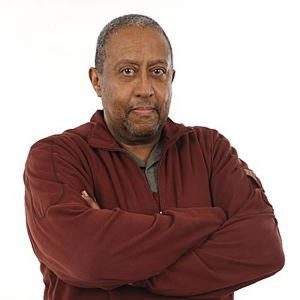
Publisher, Editor Gregg W. Morris
Can be reached at gregghc@comcast.net, profgregwmorris@gmail.com